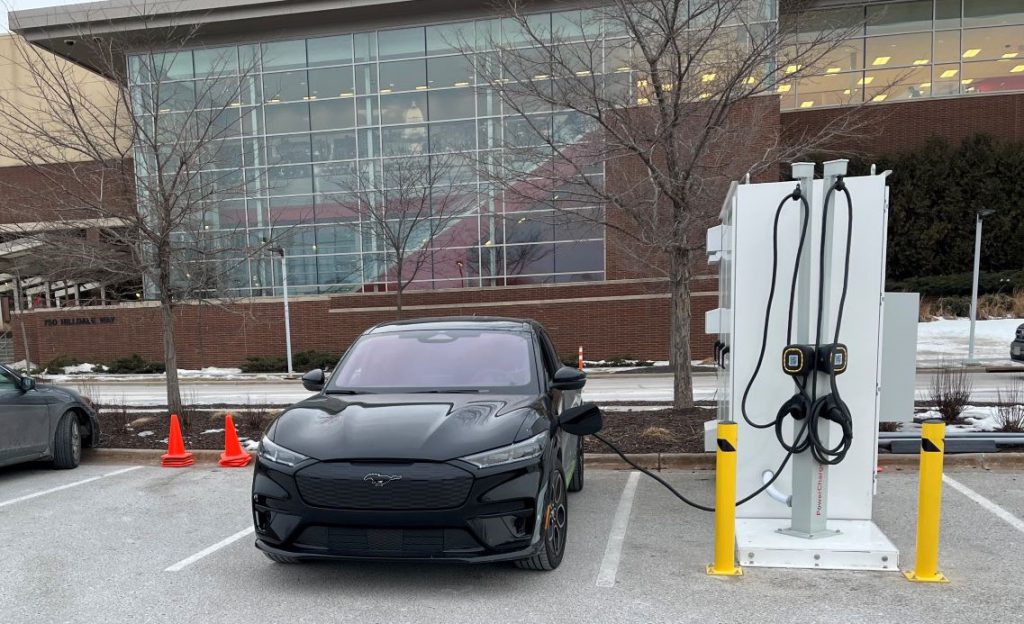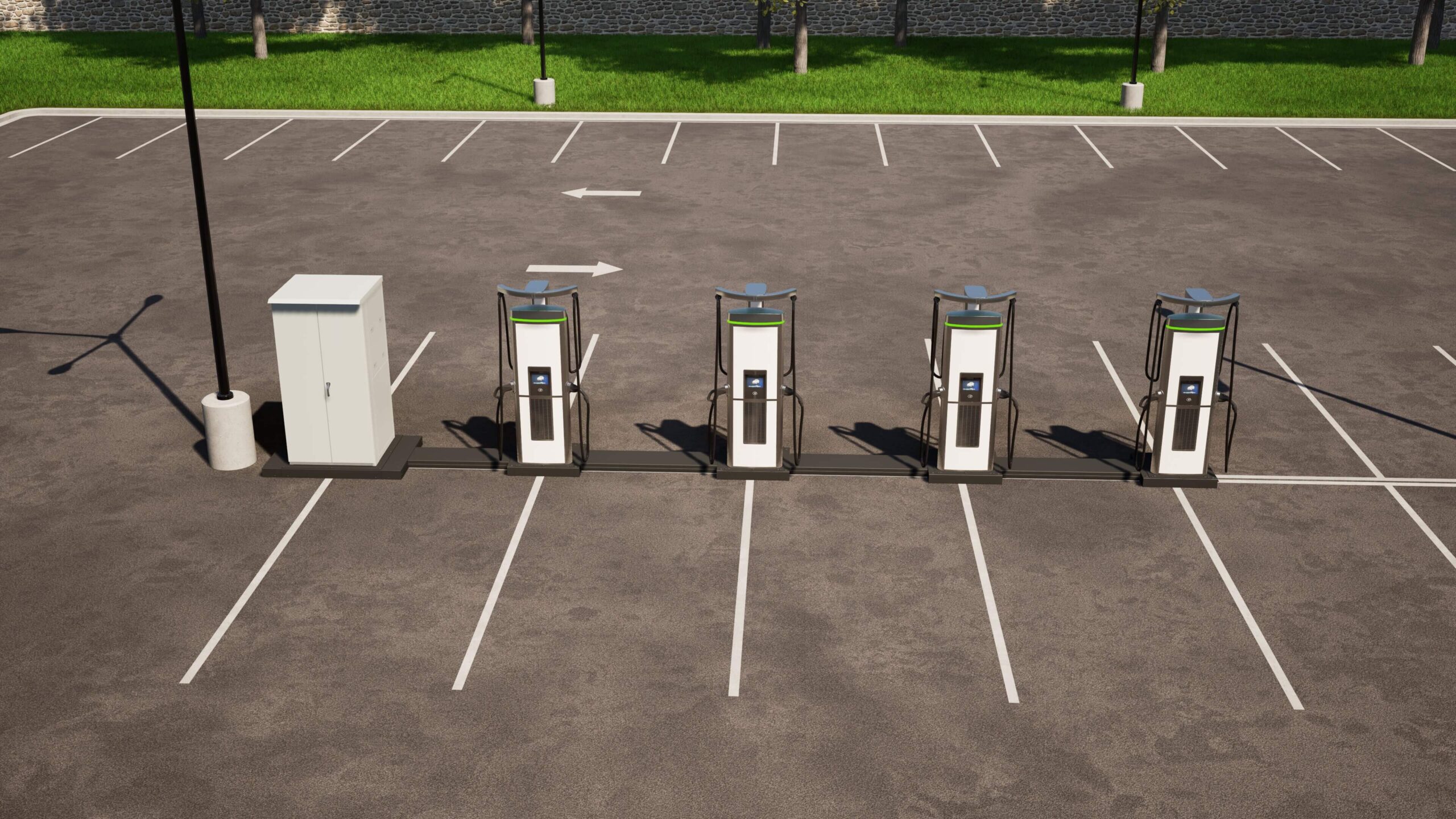
The world is rapidly embracing electric vehicles (EVs) as a sustainable and efficient mode of transportation. With this surge in EV adoption, the demand for reliable and accessible charging infrastructure is growing.
Simultaneously, there is a growing emphasis on utilizing renewable energy sources to reduce carbon emissions and combat climate change. This has paved the way for the integration of electric vehicle charging stations with renewable energy systems in commercial and industrial applications, offering a host of benefits to both the EV users and the buildings in proximity that utilize distributed energy resources.
At FTI, we see the continued growth of organizations searching for clean EV charging solutions for their organizations due to the numerous benefits they can bring.
Clean and Sustainable Energy for EVs
Electric vehicle charging stations powered by distributed energy sources, such as solar or wind, provide an opportunity to reduce reliance on fossil fuels and minimize greenhouse gas emissions. By utilizing clean energy, the environmental impact of EV charging is significantly reduced, contributing to a greener and more sustainable future.
Cost Savings and Energy Efficiency
Combining EV charging with renewable energy systems offers the potential for significant cost savings. As commercial and industrial buildings often have high energy demands, integrating EV charging infrastructure with distributed energy resources can help offset the electricity costs by generating electricity on-site. This reduces dependence on the grid and minimizes the impact of electricity price fluctuations.
Moreover, renewable energy systems are becoming increasingly cost-effective, with declining installation and maintenance costs. This makes it financially viable for businesses to invest in renewable energy technologies and leverage them for EV charging, resulting in long-term energy savings and improved operational efficiency.
Grid Stabilization and Peak Demand Management
Integrating EV charging stations with renewable energy systems provides a valuable opportunity for grid stabilization and peak demand management. By utilizing smart charging technologies and advanced energy management systems, EV charging can be strategically scheduled to align with periods of high renewable energy generation. This enables the optimal utilization of renewable energy resources and reduces strain on the grid during peak demand periods.
Additionally, electric vehicles can serve as mobile energy storage units. During periods of high electricity demand, EVs connected to charging stations can provide power back to the grid through vehicle-to-grid (V2G) technology. This bi-directional energy flow helps balance grid load and supports the integration of intermittent renewable energy sources, making the overall energy system more resilient and reliable.
Enhanced Building Resilience
Buildings in proximity to EV charging stations that utilize distributed energy resources can benefit from increased energy resilience. By incorporating renewable energy systems, such as solar panels or wind turbines, buildings can generate their own electricity. This reduces dependency on the traditional power grid and enhances the ability to operate autonomously during grid outages or disruptions.
Furthermore, combining EV charging infrastructure with distributed energy resources creates a localized energy ecosystem. Excess energy generated can be shared among the buildings in the vicinity, fostering community resilience and reducing the risk of energy shortages during emergencies.
Positive Public Image and Sustainability Leadership
Adopting renewable energy-powered EV charging stations demonstrates a commitment to sustainability and environmental stewardship. Businesses that integrate these technologies into their operations can enhance their public image and brand reputation. Customers and stakeholders increasingly value organizations that prioritize sustainability, and EV charging with renewable energy serves as a visible testament to an organization’s commitment to reducing carbon emissions and combating climate change.
The integration of electric vehicle charging stations with renewable energy systems in commercial and industrial applications brings a multitude of benefits. It promotes the use of clean and sustainable energy, offers cost savings and energy efficiency, supports grid stabilization and peak demand management, enhances building resilience and contributes to a positive public image. Contact us today to get started on clean EV charging for your organization.
If you enjoyed this blog article, please subscribe to stay up to date on the latest industry news from our experts at FTI.










